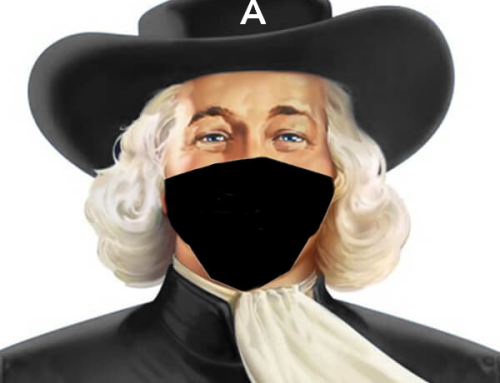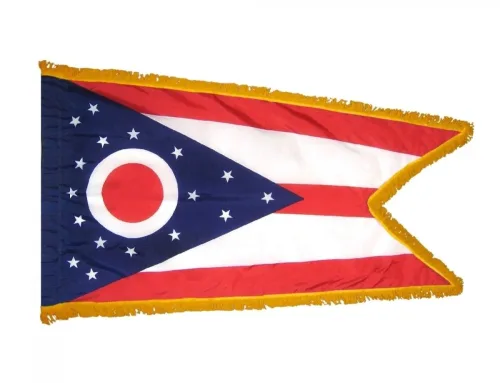Literature isn’t just under attack in Iran, China, or El Salvador, however.
By Jody DiPerna
Since the attempted assassination of the Anglo-Indian author Salman Rushdie as he prepared to speak at the Chautauqua Institution in upstate New York, I’ve been thinking about the ways that writers threaten the status quo by forcing us to examine difficult ideas. I’ve been thinking about the ways the act of reading forces us to sit with complex truths, even if they’re uncomfortable. Since the publication of his 1988 magical realist novel The Satanic Verses, which led to the imposition of a fatwa from the supreme cleric of Iran the Ayatollah Khomeini, Rushdie has lived a life dedicated to literary freedom. Which is why the attack on him is an attack on all of us.
In the February 1994 founding charter for the organization Cities of Asylum, Rushdie argued that literature challenges the powerful and the petty. He likened authors to miners, performing some of the hardest work there is, and to architects who plan and build. Rushdie claimed that writers can be demolition men, jewelers, jesters and lovers.
Readers, too, can take on those roles. Sometimes, the act of reading is simply a matter of being entertained, of appreciating jewels, while other works beckon the reader deep into the mine where they’re asked to work hard mining such gems themselves. Yet other writers reveal to us where love grows, communities are built, and lives are destroyed. The best writers manage to do all of those things and the best readers are able to give over to the experience and come out different on the other end.
The creative spirit, whether it be writer or reader, musician or performer, is an act of resistance. And it is under attack.
Henry Reese, a founder of the Pittsburgh-based City of Asylum organization which promotes both freedom of speech and assistance to individual writers from nations where that speech is not protected, was on stage with Rushdie on August 12th when the author was stabbed. In trying to defend Rushdie, Reese was also injured. I’ve spent the last couple of weeks thinking about literary freedom and how it was, of course, Reese who was on stage with Rushdie at the time. Because Reese’s mission, like the organization which he co-founded, is elegant in its simplicity. Artists and writers must be allowed to create, to challenge us to a deeper understanding of what makes us human, of how we interact with each other and the world around us. So, what does it mean that artists and writers who give so much life to our lives are under attack? It is an attack on the very notion of ideas, the belief that we can learn and change and grow, by reading, by writing, by sharing music and theatre.
Two decades ago, Reese and his wife Diane Samuels started their mission to offer housing and shelter to artists and writers. They were inspired by Rushdie, who, in 1995 wrote that, “In the past, it was rarely the writer in person who was persecuted. Today there are no limits, and it is the very life of the writer which is in danger, especially since the punishment is served with no warning and may be carried out at any time, and in any place.” Chautauqua demonstrates that this is still true.
City of Asylum was to be a bullwork against that sort of danger, and in that manner, they’ve performed a crucial service. In 2004, Huang Xiang, a dissident poet who had been on death row in China, was the first such writer to come to the North Side of Pittsburgh when he and his wife moved into housing through City of Asylum. Two years later, the El Salvadoran journalist and writer Horacio Castellanos Moya arrived on Sampsonia Way. Vital thinkers and writers have been coming ever since.
Literature isn’t just under attack in Iran, China, or El Salvador, however.
In the Pittsburgh area, Franklin Regional school district “paused” the teaching of Persepolis, the Marjane Satrapi graphic novel about being a 10-year old girl during the Iranian revolution, as reported by the Tribune Review. Journalist Patrick Varine describes in that same article how books have been hidden and wrongly shelved at the Sharpsburg Library, just north of Pittsburgh, including Nikole Hannah-Jones’ The 1619 Project. Meanwhile, on a book display, a children’s biography entitled Who was Martin Luther King Jr? was replaced by somebody with a title about Adolph Hitler. Throughout the country, two of the most celebrated books in the American canon , The Bluest Eye and Beloved, both by Toni Morrison, are constantly targeted for banning and censoring, according to both PENAmerica and the ALA.
Unprecedented efforts at censorship have swept through schools and libraries, particularly targeting titles about race or sexuality.
“We’ve really never quite seen a [similar] period in which this has occurred at this kind of scope and scale as now. Usually, we see a few cases a year, but over this past year, what’s happening is completely different,” said Summer Lopez, the chief program officer for PEN America. With a similar mission to City of Asylum, PEN America aims to unite writers and their allies so as to both celebrate creative expression and defend the liberties that make it possible. Book bans and challenges are understandably something that they take very seriously.
Another organization, the American Library Association, provides support for librarians, educators, and communities that are dealing with efforts to ban and censor books and information. Their Office for Intellectual Freedom also compiles data on book bans. Not every challenge gets media attention, but the ALA’s data is a good indication of how wide-spread censorship currently is.
In 2021, the ALA tracked 729 challenges to library, school, and university materials and services and the 1,597 books that were targeted that year. I reached out to Deborah Caldwell-Stone, the director of the Office for Intellectual Freedom to learn more. It’s not just books that are under attack; librarians and educators have become targets themselves, she explained.
“We are receiving regular reports from librarians that they’re being targeted on social media and being doxxed. [The conservative magazine] The Federalist just published an article where they published emails they got through public information requests, and they did not redact the librarian’s names or email addresses,” Caldwell-Stone said.
Both Caldwell-Stone and Lopez said that the targeted books are very specific and consistent in that their subject matter tends to be about people of color and LGBTQ issues.
“We’ve also been tracking legislation, bills to restrict conversations mostly around race, gender, American history in classrooms, both K through 12 and in higher ed. We call them educational gag orders,” Lopez said. “I think, unfortunately, it’s just become a political tactic.”
Books being banned and censored do more than just limit access, according to Caldwell-Stone.
“It’s a signifier. It’s an enormous message of exclusion when you take a book about a gay teen off a high school library shelf, because gay teens and trans teens at that high school take note. The same thing with books that deal with lived experiences of Black adolescents. When you ban The Hate U Give, by Angie Thomas, what message are you sending to the students? They don’t belong. And they are never intended to belong. They don’t have a right to exist or take full ownership of their identities or their lives,” Caldwell-Stone told me.
She recounted a report of a Montana library where books are riddled with bullet holes and then left in the library drop box for book returns.
“You can’t help but take a certain message from that,” she said.
Rushdie has been living with threats to his life for well over two decades, but he’s hardly the only writer to be targeted, especially recently. Other writers of color, often women and LGBTQ authors, are often the most targeted. Nikole Hannah-Jones has received death threats for her work on The 1619 Project; Angie Thomas, author of the always targeted The Hate U Give, has likewise received death threats. Roxanne Gay, the author of Bad Feminist and Hunger, also received death threats and reports that she pays for a security service to monitor and protect her.
Such threats put the life of the reader in danger too, if not in a literal sense, then in a spiritual one. Book bans might not be death threats, but they do demonstrate the ways attacks on books and writers send very specific, intentional messages to librarians, to educators, and to children and adolescents, as well as to the rest of us.
The night that Rushdie was attacked, Reese sent out an email indicating that his injuries were treatable and that his thoughts were with his friend, writing that, “The fact that this attack could occur in the United States is indicative of the threats to writers from many governments and from many individuals and organizations.” True in Tehran, but also true in Pittsburgh.
I’ve spent years covering books and literature in Pittsburgh. From Deesha Philyaw, Laila Lalami and Ann Pancake to Carmen Maria Machado, Brian Broome and Masha Gessen, I’ve learned something from each of them. More than anything, I’ve learned how literature presents a “necessary danger” for all of us. Despite Pittsburgh’s myriad faults, especially regarding its Black citizens, organizations like City of Asylum are a testament to a certain belief in literary freedom. A place that is a safe harbor for writers who were persecuted and endangered in their homes; a community of writers and thinkers and readers in Pittsburgh that includes writers from Iran, China, El Salvador, Bangladesh, Syria, Ethiopia. It is a living, breathing thing. And we have to fight for it still.
NOTES: For more information, you can consult the ALA’s list here. You can find PEN America’s list here.
There are now Cities of Asylum in Pittsburgh, Detroit and Ithaca. You can find more information here: CoA Pittsburgh, and CoA Detroit, and CoA Ithaca.
And if you want to get involved, you can check out Unite Against Book Bans
Jody DiPerna lives, reports and writes from her home in Pittsburgh. She is an award winning
journalist and one of the founders of the Pittsburgh Institute for Nonprofit Journalism. Currently,
she is researching a book about the importance of reading, writing and literary life in Appalachia
for West Virginia University Press. She conducted one of her finest interviews in a rural
laundromat.






